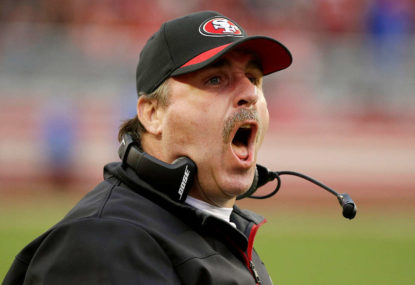2022 Trivia: The Roar's jam-packed Christmas Day sports quiz!
The jam-packed month-by-month quiz full of 2022 sports trivia!

In last week’s eSports Parallels, we looked at how eSports are integrating successful strategies from traditional sports, starting with building around a ‘spine’, a core group of players that drastically improve an entire team’s performance when playing together.
Today we’ll look at the support staff.
Long ago, eSports and competitive games were simply seen as a hobby. Get good and you could earn some money. Now, we’re seeing professional teams earn salaries and the overall professional attitude to eSports has grown.
eSports organisations are constantly looking for ways to improve their players on a technical level. Previously, games would be determined based on mechanics – i.e the player’s ability to click and react faster and play a character better. Now we’re seeing strategies and even ‘film review’.
It has got to a point where organisations are starting to hire eSports coaches, analysts and managers. The sheer fact that preparation and strategic planning are almost a necessity in professional gaming would be brushed away if it was discussed five years ago.
In CS:GO, a coach would sit behind the players and watch, giving them a first-hand insight into the game, to allow them to formulate counter-strategies based on their opponent. In League of Legends, the coach communicates with the team during pick/ban phase to give extra insight as to team compositions.
We’re even seeing player’s psychological state being conditioned. Using Team SoloMid’s League of Legends* team as an example.
TSM brought on Weldon Green, a ‘Sport Psychological Skills Trainer’, who has studied a Masters of Sports Science in Sports Psychology.
He mentally prepares them before each game and gives them ways to overcome the mental toll of losing. With his guidance, TSM ended the Summer Split 17-1 and eventual champions. Considering Weldon Green was located in Finland and TSM owner Andy ‘Reginald’ Dinh was willing to foot the bill to relocate Green and his family means there’s a huge interest in investment in the support staff of eSports players.
Even in Oceania, where eSports is in it’s infancy, are we seeing a comprehensive coaching structure. Most teams are starting to bring on analysts as well as managers. Analysts would study the statistics of the game, success rates and such and pass them over to the coach to formulate strategies.
Managers provide logistical support for the team, including managing player schedules and contacting other teams to schedule scrims/practice.
Most, if not all eSports organisations, regardless of their region’s development, have dedicated a large number of resources towards building and optimising their coaching and support staff.
Much like traditional sports, eSports coaching staff are playing a growing role in the development and success of their teams.
Finally, I’ve been asked (due to my previous article) as to why I frequently use Team SoloMid as an example. Not only are they adapting traditional sport strategies into their team, they’re also North America’s most decorated organisation, and have the most comprehensive coaching structure that other teams attempt to emulate.